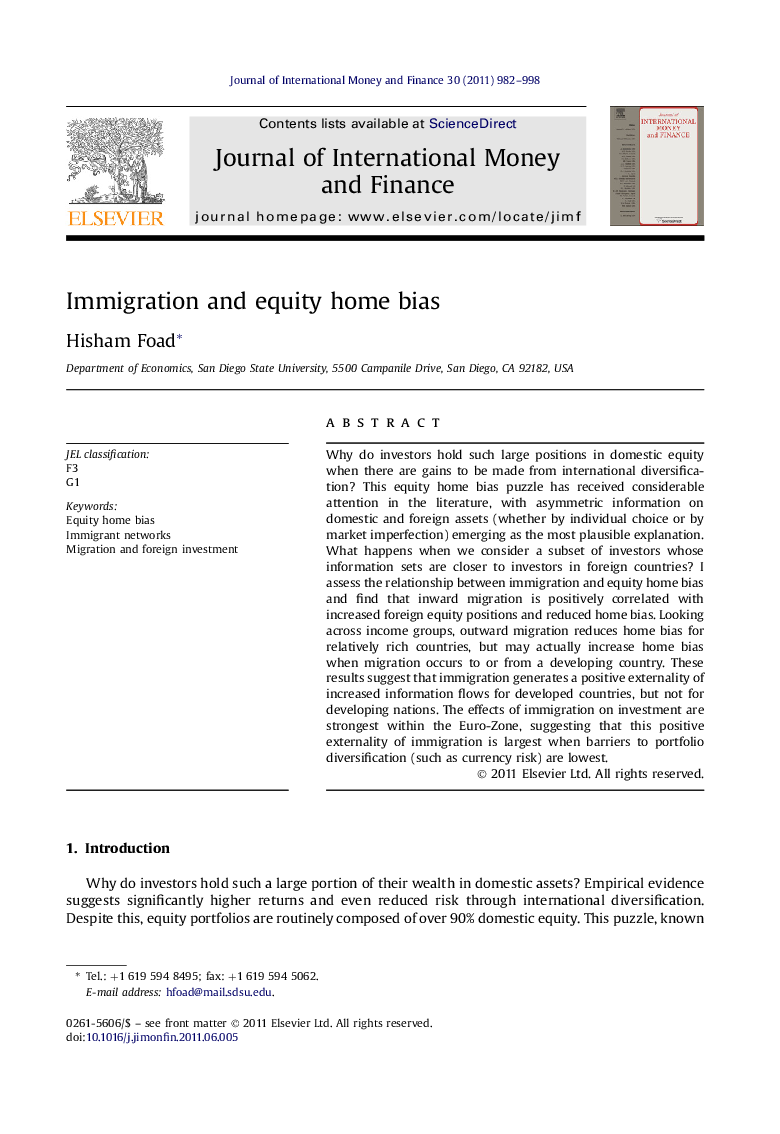| کد مقاله | کد نشریه | سال انتشار | مقاله انگلیسی | نسخه تمام متن |
|---|---|---|---|---|
| 964720 | 930593 | 2011 | 17 صفحه PDF | دانلود رایگان |

Why do investors hold such large positions in domestic equity when there are gains to be made from international diversification? This equity home bias puzzle has received considerable attention in the literature, with asymmetric information on domestic and foreign assets (whether by individual choice or by market imperfection) emerging as the most plausible explanation. What happens when we consider a subset of investors whose information sets are closer to investors in foreign countries? I assess the relationship between immigration and equity home bias and find that inward migration is positively correlated with increased foreign equity positions and reduced home bias. Looking across income groups, outward migration reduces home bias for relatively rich countries, but may actually increase home bias when migration occurs to or from a developing country. These results suggest that immigration generates a positive externality of increased information flows for developed countries, but not for developing nations. The effects of immigration on investment are strongest within the Euro-Zone, suggesting that this positive externality of immigration is largest when barriers to portfolio diversification (such as currency risk) are lowest.
► Examine the impact of migration on foreign equity shares across 41 countries.
► Immigration increases the share of native country equity in the host portfolio.
► Ambiguous effect on the share of host country equity in the native portfolio.
► Stronger effect of migration on home bias for developed countries.
► Strongest effect for migration within the Euro Area.
Journal: Journal of International Money and Finance - Volume 30, Issue 6, October 2011, Pages 982–998